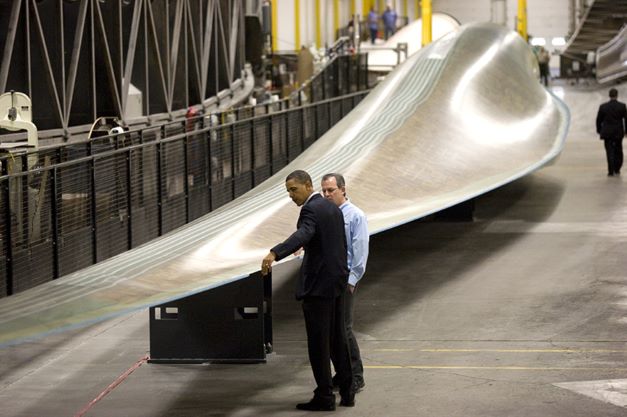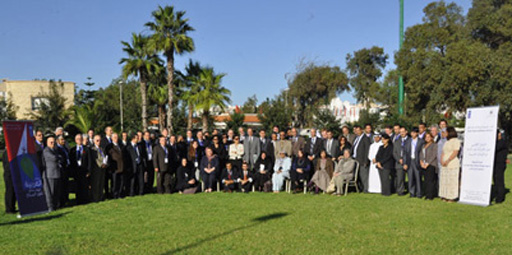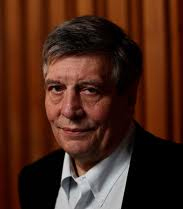Actualités
US President Obama's job creation in local Wind Turbine manufacturing
 While visiting the TPI Composites plant in Newton, Iowa on May 24th 2012, President Obama presented the efforts made by his administration to support green manufacturing jobs. A few months before, on April 6th 2011, President Obama addressed the employees of a GAMESA Plant -a Spanish wind turbine manufacturer- established in Fair Hills, Pennsylvania. During an unprecedented Question & Answer session held with the workers of the plant, President Obama highlighted the importance of creating local manufacturing capacities in the wind energy sector. These could spur green technology developments and exports to world markets and regions which currently lack the size and/or capacities for integrating a green energy industry locally. The United States being one of the largest single energy consuming markets in the world means that a green energy economy stands good chances of thriving. The importance of establishing domestic manufacturing capacities to support the local integration and phased deployment of the Sahara Wind Project is a key element to be taken into consideration for the region. Collaboration on broader capacity building programs and policies aimed at establishing a local wind turbine manufacturing industry represents one of our main objectives.
While visiting the TPI Composites plant in Newton, Iowa on May 24th 2012, President Obama presented the efforts made by his administration to support green manufacturing jobs. A few months before, on April 6th 2011, President Obama addressed the employees of a GAMESA Plant -a Spanish wind turbine manufacturer- established in Fair Hills, Pennsylvania. During an unprecedented Question & Answer session held with the workers of the plant, President Obama highlighted the importance of creating local manufacturing capacities in the wind energy sector. These could spur green technology developments and exports to world markets and regions which currently lack the size and/or capacities for integrating a green energy industry locally. The United States being one of the largest single energy consuming markets in the world means that a green energy economy stands good chances of thriving. The importance of establishing domestic manufacturing capacities to support the local integration and phased deployment of the Sahara Wind Project is a key element to be taken into consideration for the region. Collaboration on broader capacity building programs and policies aimed at establishing a local wind turbine manufacturing industry represents one of our main objectives.
The video and full transcript of the President’s speech of April 6th 2011, as well as the Video of May 24th 2012 are no longer accessible.
Middle-East and North Africa Renewable Energy Conference
Sahara Wind at the 5th Middle East and North Africa Renewable Energy Conference (MENAREC 5)
The "Middle-East and North Africa Renewable Energy Conference» (MENAREC) was organized by a country of the MENA region in partnership with the German Federal Ministry for Environment, Nature Protection and Nuclear Safety (BMU) and the German Agency for International Cooperation (GIZ) since 2004.
Production of Drinking Water in Arid Regions using Renewable Energies
 Le projet Sahara Wind présenté à la 5e conférence IPWE, 4-7 janvier 2012 à Marrakech, Maroc
Le projet Sahara Wind présenté à la 5e conférence IPWE, 4-7 janvier 2012 à Marrakech, Maroc
La 5e conférence internationale Perspective sur les ressources en eau et l'environnement (IPWE 2012) est organisée par l'Environmental & Water Resources Institute (EWRI) de l'American Society of Civil Engineers (ASCE). L'événement couvre un éventail de questions allant de l'approvisionnement en eau, la durabilité et l'assainissement aux études de cas régionales (spécifiques à l'Afrique et aux régions arabes). Au cours de l'événement, les activités régionales de renforcement des capacités du projet Sahara Wind au Maroc et en Mauritanie ont été présentées sous la rubrique «Production d'eau potable dans les régions arides à l'aide d'énergies renouvelables».
Sahara Wind project's transition into Hydrogen economy (IPHE report)
IPHE's Renewable Hydrogen Report identifies the Sahara Wind project as likely to facilitate the transition into a cleaner more sustainable hydrogen economy.
The hydrogen production from large renewable energy sources of the Sahara Wind Project in support of local industries was presented on December 1st 2009, during the Joint 12th International Partnership for a Hydrogen Economy (IPHE) Implementation and Liaison (ILC) & Steering Committee (SC) in Washington, D.C., USA. Through a joint collaboration made available to Mediterranean Dialogue Countries by the North Atlantic Treaty Organization, possibilities of accessing and storing renewable energies in weaker electricity grids have been established. The initial testing and deployment of renewable hydrogen applications within academic institutions of Morocco and Mauritania in partnership with industries of the region are demonstrating the importance of local renewable energy integration.
The Sahara Wind Project development and capacity building activities conducted within Morocco and Mauritania’s universities has been facilitated by member countries of the IPHE.
Maghreb/Middle East Renewables 2011

The Sahara Wind project presented under the conference's theme: Fuelling the Renewable Energy Revolution for a Sustainable Energy Future
Hosted under the auspices of the Ministry of Energy, Mines, Water & Environment of Morocco, the 3rd Annual Maghreb/Middle East Renewable Energy Conference 2011 was held on 4-5 July 2011 in Rabat, Morocco. Building on the success of the previous events held in Cairo in 2009 and Marrakech in 2010, this event provided industry and market stakeholders a platform for continued dialogue.
This event brought together regional governments, project financiers, technology providers, investors and other relevant industry stakeholders. The event provided an opportunity to clarify policy issues, financing regulations and PPP frameworks in place to support projects on wind & solar energy.
Renewable potentials and prospects in the Maghreb/Middle East regions are exceptional taking into consideration the average wind speed and solar potentials which rank among the highest in the world. This represents a factor which will ensure that renewable energy will experience considerable growth in order to establish itself as a viable source for power generation in the broader MENA region.
Wind Power Saves Water !
 March 22, 2011 - World Water Day: The Global Wind Energy Council calls on policy makers to take urgent decisions for the world’s power generation infrastructure for decades to come.
March 22, 2011 - World Water Day: The Global Wind Energy Council calls on policy makers to take urgent decisions for the world’s power generation infrastructure for decades to come.
“As highlighted by the UN today, water scarcity is now a pressing issue in many parts of the world, and this will be exacerbated by climate change,” said Steve Sawyer, GWEC’s Secretary General. “Wind power can make a considerable contribution to conserving the world’s valuable water resources. Unlike most other power sources, which consume huge amounts of water that could be used much more productively for human consumption and agriculture, wind power generation does not use any water.” Some 40% of the world’s population already live in water-stressed areas, and population growth and industrialisation will put further pressure on water availability. Given the high levels of water use in conventional power generation, increasing power demand will aggravate the situation. As a result, global water demand is expected to outstrip supply by 40% by 2030 under a business-as-usual approach.
EU Strategy Paper for collaboration with North Africa
Sahara Wind project perspectives on sustainable development, education and renewable energy access inspires EU Commission Proposal (March 08, 2011).
The Southern Mediterranean is strategically important for the EU in terms of security of gas and oil supplies from some of the countries but also more broadly in terms of transit from the region and beyond. There is clear potential for building an EU-Mediterranean partnership in the production and management of renewables, in particular solar and wind energy, and in having a joined-up approach to ensuring energy security. Joint renewable energy investments in the Southern Mediterranean in line with the EU's 2050 decarbonisation scenario could offer the possibility of a new partnership provided that the right market perspective is created for electricity imports.
It is desirable to open a credible perspective for the integration of the Southern Mediterranean in the EU internal energy market based on a differentiated and gradual approach. In the mid to long term, this would mean establishing a form of 'EU-Southern Mediterranean Energy Community' starting with the Maghreb countries and possibly expanding progressively to the Mashreq. Extending the Energy Community Treaty with the Union's Eastern and South-Eastern neighbours, or building on its experience, this community should cover relevant parts of the EU's energy legislation with a view to promoting a real and reliable convergence of South Mediterranean partners' energy policies with EU policy.
Entitled "A PARTNERSHIP FOR DEMOCRACY AND SHARED PROSPERITY WITH THE SOUTHERN MEDITERRANEAN " this JOINT COMMUNICATION was issued by the High Representative of the Union for Foreign Affairs and Security Policy on March 08th 2011.
Sahara Wind présenté à la Red Eléctrica de España
 Le projet Sahara Wind présenté au siège de Red Eléctrica de España, en Espagne, le 23 février 2011.
Le projet Sahara Wind présenté au siège de Red Eléctrica de España, en Espagne, le 23 février 2011.
Les synergies industrielles liées au déploiement progressif de la ligne de transmission HVDC 5 GW du projet Sahara Wind présentées au siège de Red Eléctrica de España; le gestionnaire de réseau de l'Espagne. Red Eléctrica exploite les réseaux électriques espagnols, dans la péninsule et au-delà, garantissant la sécurité et la continuité de l'approvisionnement sur le territoire espagnol. Le fonctionnement du système englobe la sécurité et la continuité de l'approvisionnement, ainsi que la coordination de la production et du transport dans les conditions de qualité requises par la réglementation en vigueur.
Arab Climate Resilience Initiative Regional Forum
 The Sahara Wind project presented at the Arab Climate Resilience Initiative Regional Forum 3-5 November, 2010 in Skhirat, Morocco
The Sahara Wind project presented at the Arab Climate Resilience Initiative Regional Forum 3-5 November, 2010 in Skhirat, Morocco
The Arab Climate Resilience Initiative Regional Forum brought together experts, policymakers and representatives of the League of Arab States to stimulate climate policy dialogue and identify key governmental commitments. The Regional Forum on Addressing Climate Change Impacts in the Arab Countries was organized in partnership with UNDP Morocco and the government of Morocco. Regional capacity building in clean energy technologies with the Sahara Wind project academic and industry partners were presented to the Forum’s participants.
La "Fondation Hermann Scheer" poursuivra l'oeuvre de Dr. Hermann Scheer
 En tant qu’esprit indépendant, Dr. Hermann Scheer s’est engagé en faveur des énergies renouvelables car il estimait que cette alternative mènerait notre planète vers un avenir énergétique et environnemental plus sûr, équitable et acceptable pour l’ensemble de sa population. En tant que législateur allemand, Dr. Hermann Scheer fut l’architecte de la législation sur les énergies renouvelables en Allemagne, ayant permis l’essor actuel de la filière des énergies renouvelables dans le monde. Sa connaissance intime des rouages entre les questions politiques, économiques, énergétiques et environnementales en sus d’un enthousiasme mobilisateur ont permis aux énergies renouvelables d’amorcer une transition énergétique globale de manière quasi-irréversible. En tant que membre du Comité Scientifique et Éthique du Projet Sahara Wind, sa disparition nous est douloureuse. Dr. Hermann Scheer s’est éteint le 14 Octobre 2010. Nos pensées vont à son épouse ainsi qu’à sa fille. L’œuvre de Hermann Scheer sera perpétuée à travers la "Fondation Hermann Scheer“ portant son nom. (A titre posthume, ci-dessous une de ses dernières interviews)
En tant qu’esprit indépendant, Dr. Hermann Scheer s’est engagé en faveur des énergies renouvelables car il estimait que cette alternative mènerait notre planète vers un avenir énergétique et environnemental plus sûr, équitable et acceptable pour l’ensemble de sa population. En tant que législateur allemand, Dr. Hermann Scheer fut l’architecte de la législation sur les énergies renouvelables en Allemagne, ayant permis l’essor actuel de la filière des énergies renouvelables dans le monde. Sa connaissance intime des rouages entre les questions politiques, économiques, énergétiques et environnementales en sus d’un enthousiasme mobilisateur ont permis aux énergies renouvelables d’amorcer une transition énergétique globale de manière quasi-irréversible. En tant que membre du Comité Scientifique et Éthique du Projet Sahara Wind, sa disparition nous est douloureuse. Dr. Hermann Scheer s’est éteint le 14 Octobre 2010. Nos pensées vont à son épouse ainsi qu’à sa fille. L’œuvre de Hermann Scheer sera perpétuée à travers la "Fondation Hermann Scheer“ portant son nom. (A titre posthume, ci-dessous une de ses dernières interviews)
11th World Renewable Energy Congress, Abu Dhabi, UAE
 The Sahara Wind project presented at the 11th World Renewable Energy Congress 25–30 September 2010 in Abu Dhabi, UAE.
The Sahara Wind project presented at the 11th World Renewable Energy Congress 25–30 September 2010 in Abu Dhabi, UAE.
At the invitation of the Energy Directorate of the European Commission Directorate General for Research, Khalid Benhamou, Managing Director of Sahara Wind took part in the "Renewable energies: opportunities and challenges of grid integration" EU-Workshop in Abu Dhabi on 27-28 September 2010. During this event, he presented the phased deployment of the Sahara Wind project’s High Voltage Direct Current line which opens the access of the Sahara trade winds to a regional power dispatch. The presentation was carried out in the “Large scale renewable energy supply and grid integration requirements in centralized systems” session of the workshop.
Programme Eolien Intégré 1000 MW (ONEE)
Avis de pré-qualification
INVITATION A L'EXPRESSION D'INTERET EN VUE DE
LA PREQUALIFICATION DES ENTREPRISES
N° SP 40 311
En sus du développement des cinq parcs éoliens précités (850 MW), l'Initiative 1000 MW (Projets de parcs éolien) comporte la fourniture et la maintenance des équipements nécessaires à la réalisation d'un parc éolien supplémentaire de 200 MW.
Dans le cadre de l'Initiative 1000 MW (Projets de parcs éolien), la construction des cinq parcs éoliens précités 850 MW sera structurée suivant un schéma " Build Own Operate and Transfer ", et sera réalisée dans le cadre d'un partenariat public-privé où l'ONE, la Société d'Investissements Energétiques (SIE) et le Fonds Hassan II s'associeront au partenaire stratégique de référence retenu à l'issue du processus de l'Appel d'Offres précité.
Pour plus d’informations, veuillez visiter le site officiel de l’Office National de l’électricité : www.one.ma







